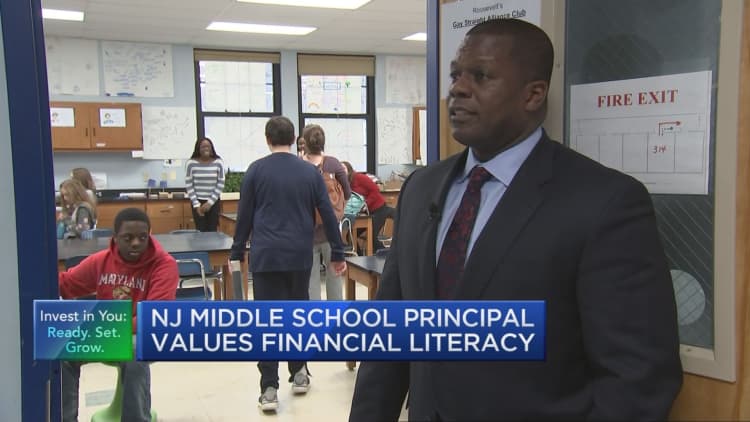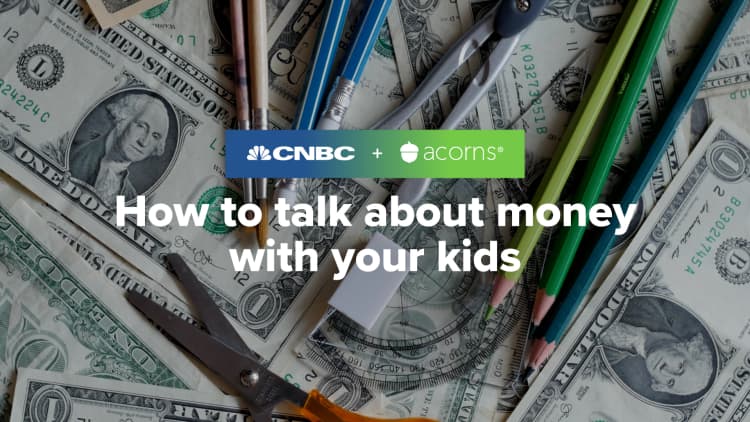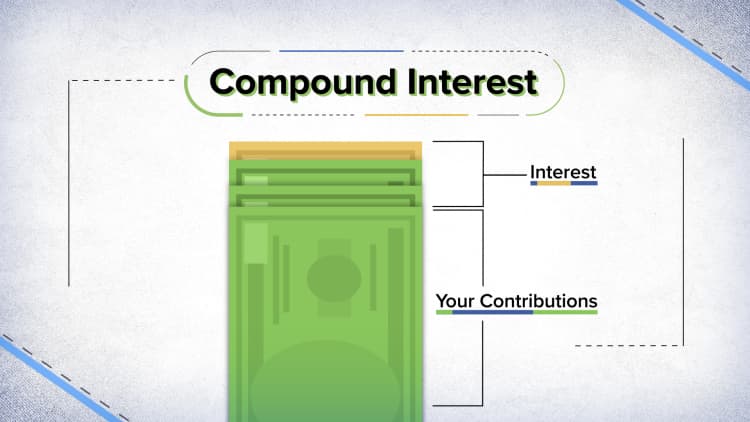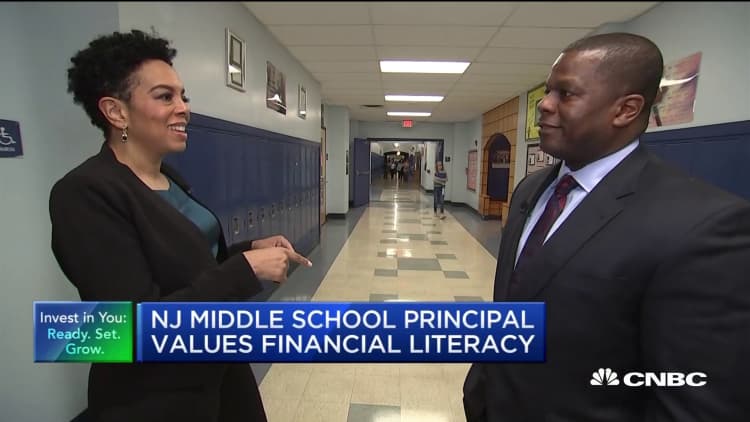
Research shows that kids who learn to manage money when they're young will be able to better handle their finances as adults.
Yet, up until recently, only 17 states required high school students to take a class in personal finance.
Now, a new report from the Council for Economic Education found that the number of states that require a high school student to take a personal finance course — either a standalone class or integrated into other coursework — in order to graduate has risen to 21.
Forty-five states now include personal finance education in their curriculum standards for kindergarten through 12 grades, although only 37 states require those standards to be implemented by local school districts.

"We have finally hit on the fact that requirements really matter," said Nan Morrison, CEO of the Council for Economic Education. "They matter because they help [students] make better financial decisions.
"Student debt is still a challenge and, with rise of gig economy and more people responsible for their financial lives, more people are realizing we have to put this in our schools," she added.
More from Invest in You:
The secret to multiplying your savings
4 steps to cut spending for 2020
Follow these dos and don'ts when you start investing
New Jersey has made financial education a requirement in high school and middle school, as well. Starting in 2019-2020, state law calls for financial literacy instruction to be part of the curriculum for all sixth, seventh and eighth graders.
Lionel Hush, principal of Roosevelt Middle School in West Orange, New Jersey, didn't wait for the state mandate. Two years ago, he started offering financial education classes at his school on Saturdays, partnering with a local non-profit that had created a financial literacy program designed for middle school students.
The course, created by the non-profit group Circle of Rainbow Sisters Seeking Spiritual and Wellness Connection, is aimed at teaching students financial skills and helping them reduce or eliminate college debt in the future.
Students who excel and win the final competition can earn as much as $1,000. They receive 20% in cash and 80% goes into their existing or a new 529 college savings account.
The program "gave them real life practical activities to do at home, to try to reduce expenditures," Hush said. "I think at first they were, they were a little dubious but once they got through the program.
"It was something they found very beneficial."
Participant Olivia Raymond, an eighth-grade student at Roosevelt, said she and her classmates "learned the fundamentals of money management like investing, saving, budgeting and donating, and it's incorporated real life aspects into managing your money."
"We have the competition where we have to lower our energy, gas, water bills," she added.
Meeting and excelling at those financial challenges helped her earn a $500 award last year. Raymond put money into a 529 savings plan, and also invested some of her winnings in an E-Trade account that her father helped her set up.
Raymond also now enjoys the lessons in the state-required personal finance course at her school. She says they're money skills that "will affect the rest of your life when you go to college and you live by yourself without your parents."
Fellow eighth-grader Gabe Strassman agrees.
"The best thing about it is how you learn about how to save money for college and the rest of your life and how to spend your money wisely without wasting it," he said.
Studies show that having state-required classes can have a significant impact on students' money moves in the future.
"Financial education graduation requirements increase applications for aid, the likelihood of receiving a grant, and acceptance of federal loans, which are all low-interest means of borrowing," according to a 2019 report by Montana State University researchers Carly Urban and Christiana Stoddard
"At the same time, financial education decreases the likelihood of holding credit card balances, and the education reduces higher-cost private loan amounts for borrowers," they said.
Hush, the father of a college freshman, said he wishes that his parents had shared with him — and he had shared with his own son — the importance not only of financial independence but financial education, as well.
"For me, honestly, my only real exposure to the idea of money was just saying my parents work hard, you know they worked hard to provide for me and my sister," Hush said. "I didn't know anything about stocks and bonds, savings plans, a checking account.

"These kids are learning that at 12 and 13."
By fulfilling a state-requirement as middle-schoolers, he said, they're learning skills that will have life-long implications for their future finances.
Morrison said teaching financial education as soon as children are school age is actually the ideal moment to begin.
"Anytime you start teaching kids when they're little, the vocabulary becomes ingrained and they put it in place," she said. "That's when they develop good habits.
"Start then," Morrison added. "Solve the problem before it's a problem."

SIGN UP: Money 101 is an 8-week learning course to financial freedom, delivered weekly to your inbox.
CHECK OUT: Inspiring stories celebrating Black History Month
CHECK OUT: 7 spring side hustles that could help you earn up to $50 an hour — or even more via Grow with Acorns+CNBC.
Disclosure: NBCUniversal and Comcast Ventures are investors in Acorns.






